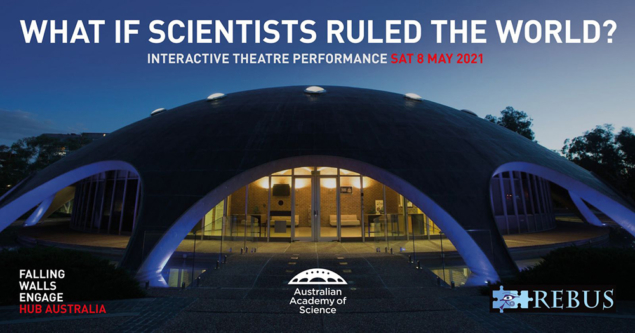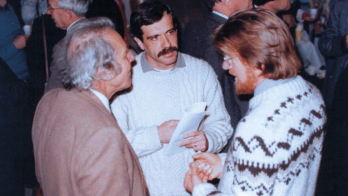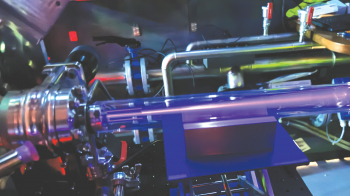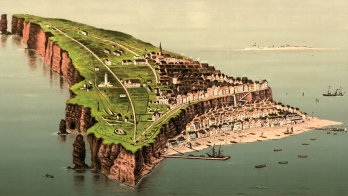What if scientists ruled the world?, directed by Ali Clinch and Robin Davidson, The Shine Dome, Canberra
A chemistry professor invents a novel way to produce chemical compounds, albeit with a small chance of toxicity. A paper is published. A quick chat with a science communicator leads to a hasty press release. But when the media picks up on it, the story is twisted.
“What if scientists ruled the world?” — a somewhat sensational but thought-provoking title for a play — is an interactive theatre production by the Australian Academy of Science in partnership with Falling Walls Engage. Staged on 8 May at the Shine Dome in Canberra, Australia, a hybrid performance explored the ramifications of an ill-considered press release, and provided a welcome opportunity for scientists to reflect on how best to communicate their research. The dynamic exchange of ideas between science experts and laypeople in the audience highlighted the power of words, and how they are used to inform, persuade, deceive or confuse.

After setting the scene, director Ali Clinch invited people participating remotely on Zoom and via a YouTube livestream to guide the actors’ actions, helping to advance and reframe the storyline with their ideas, questions and comments. Looking at the same story from different points of view invited the audience to think about the different stakeholders and their responsibility in communicating science. In the first part of the performance, for example, the science communicator talks excitedly about her job with students, but later has to face a crisis that the busy professor is unable or unwilling to deal with. At a critical point in the story, when a town-hall meeting is held to debate the future of a company that employs most of the people in the town, but which probably produced the same toxic chemical, everybody felt part of the performance. The audience could even take the place of an actor, or act in a new role.
The play highlighted the pleasures and tribulations of work at the interface between research and public engagement
The play highlighted the pleasures and tribulations of work at the interface between research and public engagement during euphoric discoveries and crisis moments alike, and has parallels both with the confusion encountered during the early stages of the COVID-19 pandemic and misguided early fears that the LHC could generate a black hole. In an age of fake news, sensationalism and misinformation, the performance adeptly highlighted the complexities and vested interests inherent in science communication today.







